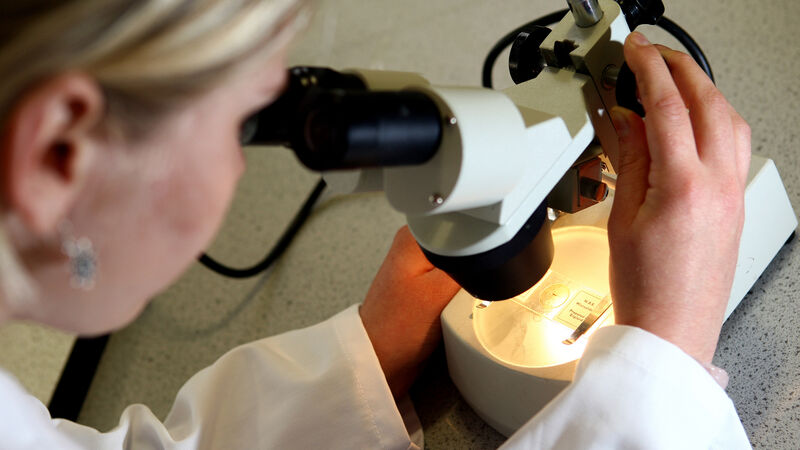All women due for CervicalCheck screening this year will get invite by March 2021

File image.
The National Screening Service (NSS) has confirmed “all” women due for CervicalCheck screening this year will be issued an invite by March next year.
The HSE-run cancer screening service could not provide any figures on the backlog facing the CervicalCheck programme, but confirmed that the service has now issued invites to women who were due for screening between January and July of this year.
The screening service, which offers women between the age of 25 and 60 a test to screen for the Human Papilloma Virus (HPV) and possible cancer, was paused in March as a result of the Covid-19 public health emergency, but was one of the first cancer screening initiatives to resume in July.
The HSE also confirmed that the majority of women awaiting assessment and treatment during the Covid-19 pause in services “were being seen within the programme’s target times”.
“CervicalCheck has issued all its ‘paused’ screening invitation letters [January to July 2020],” a spokesperson for the HSE said.
"It is projected that all people due a screening test in 2020 will have been invited by March 2021.
“We are calling on people to book their appointments as soon as they receive their invitation, and for GPs to facilitate those requesting tests, within their capacity to do so. This will enable tests to be processed and any follow-up treatment to be scheduled in a timely manner."
The NSS also hopes to catch up on “overdue” Diabetic RetinaScreen appointments by March 2021.
No figures or timelines were available for the BowelScreen programme, but the HSE said it was working with hospitals to “maximise” available capacity and looking at ways to extend capacity in the longer-term.
The screening service urged anyone with concerns about possible cancer symptoms to contact their GP
“The NSS continues to urge all people to be aware of the symptoms of the disease for which they are being screened, and not to wait for screening but to contact their GP if they have any concerns,” it stated.
Meanwhile, the 221+ patient support group, representing women impacted by the CervicalCheck controversy, has written to health minister Stephen Donnelly this week on the need for the new tribunal to be “fit for purpose”.
The tribunal was set up to deal with outstanding legal actions arising from the 2018 CervicalCheck controversy, in which smear tests were misread and women received incorrect results.
Mr Donnelly established the tribunal last week despite assuring the support group that any concerns would be addressed first.
Costs, recurrence of the disease, and the statute of limitations, which currently stands at two years, are among the key issues to be resolved.
“We have provided the minister and the department with all of the information they need, and we look forward to a positive response and moving quickly to the tribunal getting up and running — but it has to be fit for purpose,” said a spokesperson for the 221+ group.





